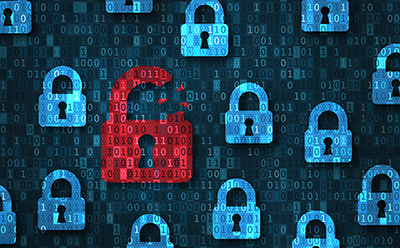Protect Your Online Gaming: Tips to Safeguard Your Privacy, Personal Information and Data
Millions of people turned to video games to escape boredom and isolation during the COVID-19 lockdowns of 2020-21. With the amount of people playing some kind of video game growing to more than 3 billion after 2022 according to Forbes.com, gaming is not a fad. It’s here to stay, and the online threats to your security and privacy will only increase right along with the popularity of the games.

But anyone can take action to bolster their security in the face of risks — the IBM Security blog “Security Intelligence” cites reports showing web application attacks that exploit vulnerabilities in online programs (mobile games, etc.) were up 167% from May 2021 to April 2022. Take ownership of gaming activity, whether it’s you or any of your children who’s the gaming fanatic!
Here are 10 online safety tips from the National Cybersecurity Alliance to keep in mind while you’re gaming:
- Use long, complex and unique passwords for each of your online accounts. Protect your passwords, and use a password manager. You can easily access a password manager if your smartphone, device or browser includes them.
- Don’t trust and don’t automatically download a game from your app store. One way to get a better idea if the game is legitimate is to check out reviews and research the game on a search engine, and double-check to make sure the URL of the website doesn’t appear suspicious.
- Add multifactor authentication (MFA) to your sign-in process. You’ll need to confirm you have apps downloaded to help you receive security keys, but the added level of security is well worth it.
- Enable automatic updates for your gaming system so they will help protect your device, software or app as soon as they’re available.
- Don’t click a link and don’t download a file you weren’t expecting to receive, whether you see it in an email or a game chat.* This is a phishing tactic and could expose your online system to malware. A report in wired.com shows gamers (particularly children) have fallen for websites with PDFs that claim to offer free in-game currency (like “skins”). If it’s too good to be true, it probably is — clicking these links can put your operating system, and the systems of others, at risk for compromise.
- Use secure payment like a debit or credit card with 24/7 fraud monitoring and $0 liability for unauthorized purchases if your gaming system requires you to tie a specific payment method to your account.
- Limit the personal information you share on your gaming profile, like your username that will appear on the screen while you’re playing. Never include any part of your name, your birthdate, numbers from ID cards like your Social Security or driver’s license, or your address.
- Use an online disguise like an avatar rather than a real photo, and keep your device’s camera or webcam off while you play. Scammers can easily capture your image with a screenshot and eventually use it to impersonate you.
- Block anyone that you begin to feel is acting suspiciously or you believe you can’t trust. Whether you’re young or older, inform others when you have blocked someone for reasons like bullying or a situation that’s getting too personal.
- Check the privacy and security settings of new or additional gaming consoles or games. PCMag provides advice on privacy policy from gaming systems and information on what can happen to your data when you use a gaming platform. You should not have to accept default settings that share information you don’t want to be shared. Configure them to your comfort level.
RBFCU’s Security & Fraud Center is loaded with helpful information and simple procedures you can perform to keep you and your family secure while using the internet or checking your email, etc. This site is updated often and also features videos.
Also, you can get protection and peace of mind with identity theft coverage. Find a plan that will provide timely alerts and in-depth monitoring that protects your personal and financial information.



